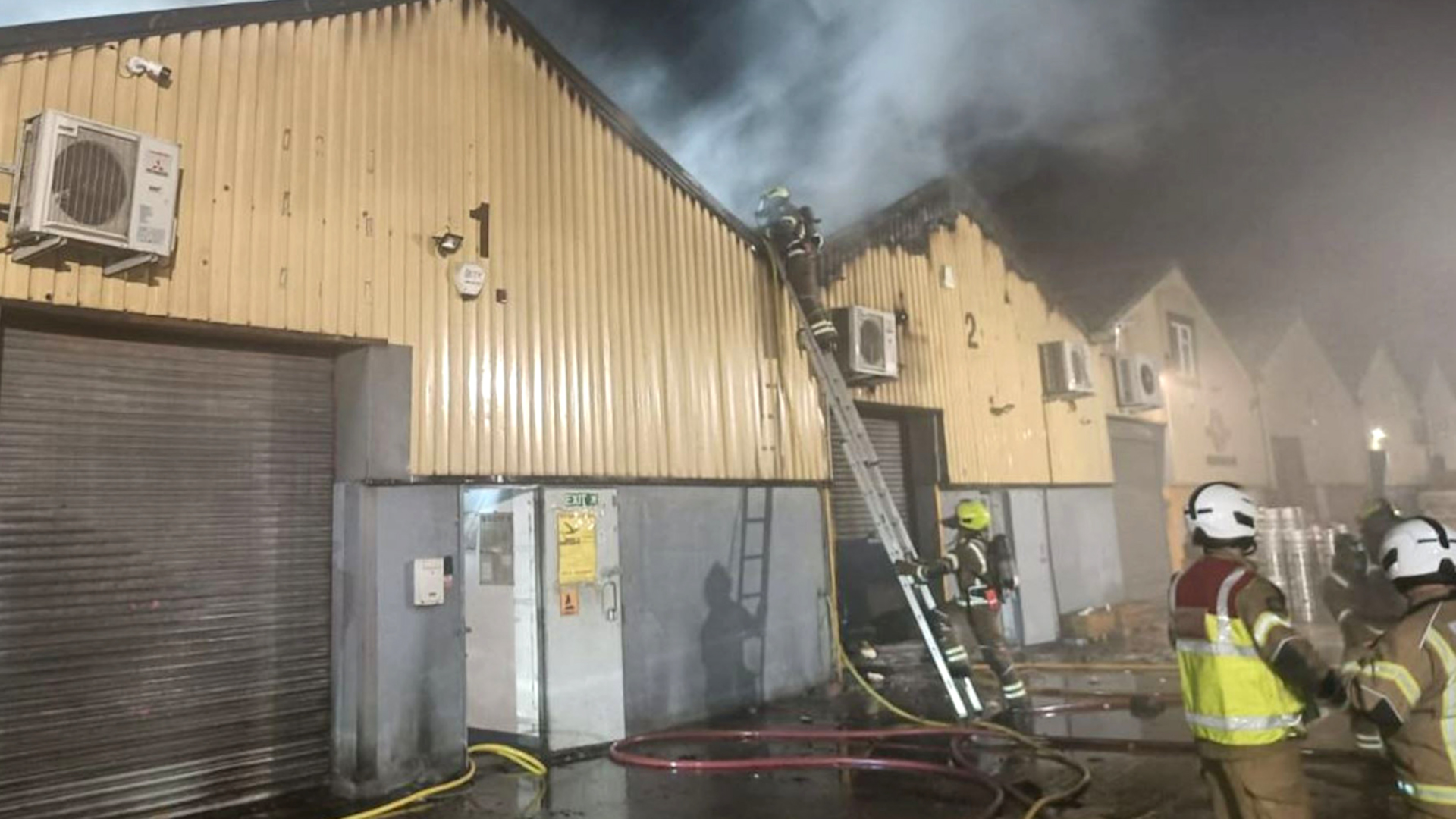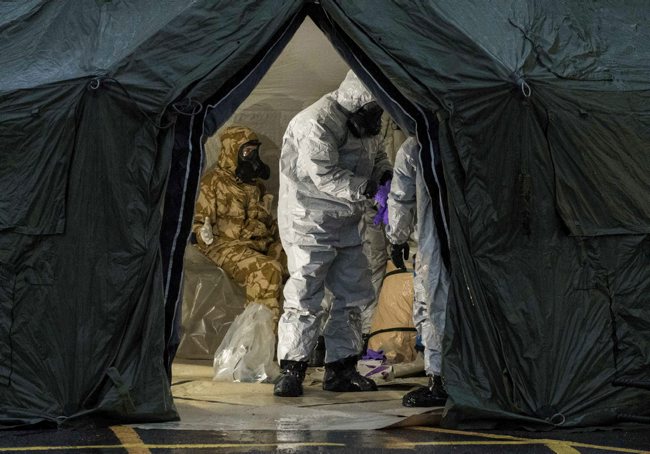Sabotage on home soil: Is Russia waging a grey zone war in the United Kingdom?
The UK is being attacked in a new kind of war – one that can have a direct impact on us all.
Grey zone attacks are increasing and pose a danger to our way of life, with Russia playing a big part in this new threat.
But what danger do they pose, and what can be done to combat them?
A recent report stated that hostile attacks against the country are said to be increasing in speed, scale and intensity.
The Defence Select Committee warned that hostile threats such as sabotage, espionage, cyberattacks and disinformation are bringing war to every home in the country.
The MOD said it has repelled 90,000 attacks linked to hostile countries over the last two years.
Russia is very adept at launching such action – in this country and across the continent.

Security Expert Elisabeth Braw, a Senior Fellow with the Atlantic Council, believes people in the UK should be very concerned about the threat.
She said: "It's not like the war we think we know, it's not like the wars we've seen in the past.
"It's a different kind of war, but it's damaging, nonetheless.
"It causes disruption, causes damage, causes the social contract to erode, causes fear, causes us to lose belief in our way of life and causes us to live in fear, and that's why it's so important for everybody to understand that it is here and it's happening on a daily basis.
"It is not the sort of abstract war that one typically worries about living in a Western country for which we prepare with Armed Forces.
"It's here, it's just not clear what we can do about it."

These grey zone attacks fall below the threshold of war, but they are designed to damage the security of the UK and its allies, blurring the lines between peace and war.
One example of this was the fire set in an East London warehouse linked to Ukraine by people operating on behalf of the prescribed Wagner organisation working for Russia.
It was the first time UK citizens were convicted of working with the banned group.
The people carrying out these actions are being recruited increasingly through the gig economy, which is short-term freelance work usually obtained through digital platforms.

It is something that many of us use every day, whether it be ordering a taxi, getting food delivered or getting someone to our home to carry out a job.
And while these are all perfectly legal and above board services, the same principle can be applied to something a little more sinister, such as carrying out grey zone attacks.
Ms Braw added: "It is incredibly upsetting that people would actively choose to attack our countries on behalf of an adversary but, in a perverse sort of way, it's almost a logical development of the gig economy.
"You don't have to have any sort of emotional links or attachments to your employer, you just do the one gig, and then you submit proof that you have done it, and you get paid."
She went on: "What is particularly alarming is that anybody could be a perpetrator.
"You can't even research or build an understanding based on people's ideological affiliation of the people who perpetrated these acts.
"So, it is incredibly alarming and, I think, what's most alarming is the fact that it's so hard to track these people simply because they can materialise at one moment, execute whatever their gig is and then fade back into the population, and somebody else would do the next gig."

It marks a shift by Russia from professional saboteurs to amateur proxies – after the Skripal poisonings in Salisbury, the Kremlin shifted to deniable tactics.
This new way of working means the threat is also at home as well as from abroad.
But what can be done to combat it?
The Defence Select Committee report recommended deploying more military assets to the Baltic and bolstering the UK's presence in the High North.

But Ms Braw is sceptical that deploying more assets to Russia's doorstep would make a significant change to the threat of grey zone action at home.
She said: "I think the most important step is for the Government to be open with the public about the threats facing the country.
"The argument that is always made is people would panic, people get frightened. Well, it's OK to panic or to get frightened.
"It's better to have the information than not to have the information.
"Obviously the government shouldn't reveal every detail, but it should talk openly and transparently about some of the threats facing the country, because if it doesn't, then how are people supposed to understand that this is serious?
"It's not detrimental deploying forces to the Baltic states or to the High North, but it's not going to do very much about grey zone aggression because we are just not going to counter grey zone aggression using conventional means, because that would be escalatory.
"And that is why Russia and some other countries use so much grey zone aggression."
Grey zone threats are a particular challenge to UK security, as they are constantly evolving and difficult to counter.
It is a new type of war that can have a direct effect on every one of us.









